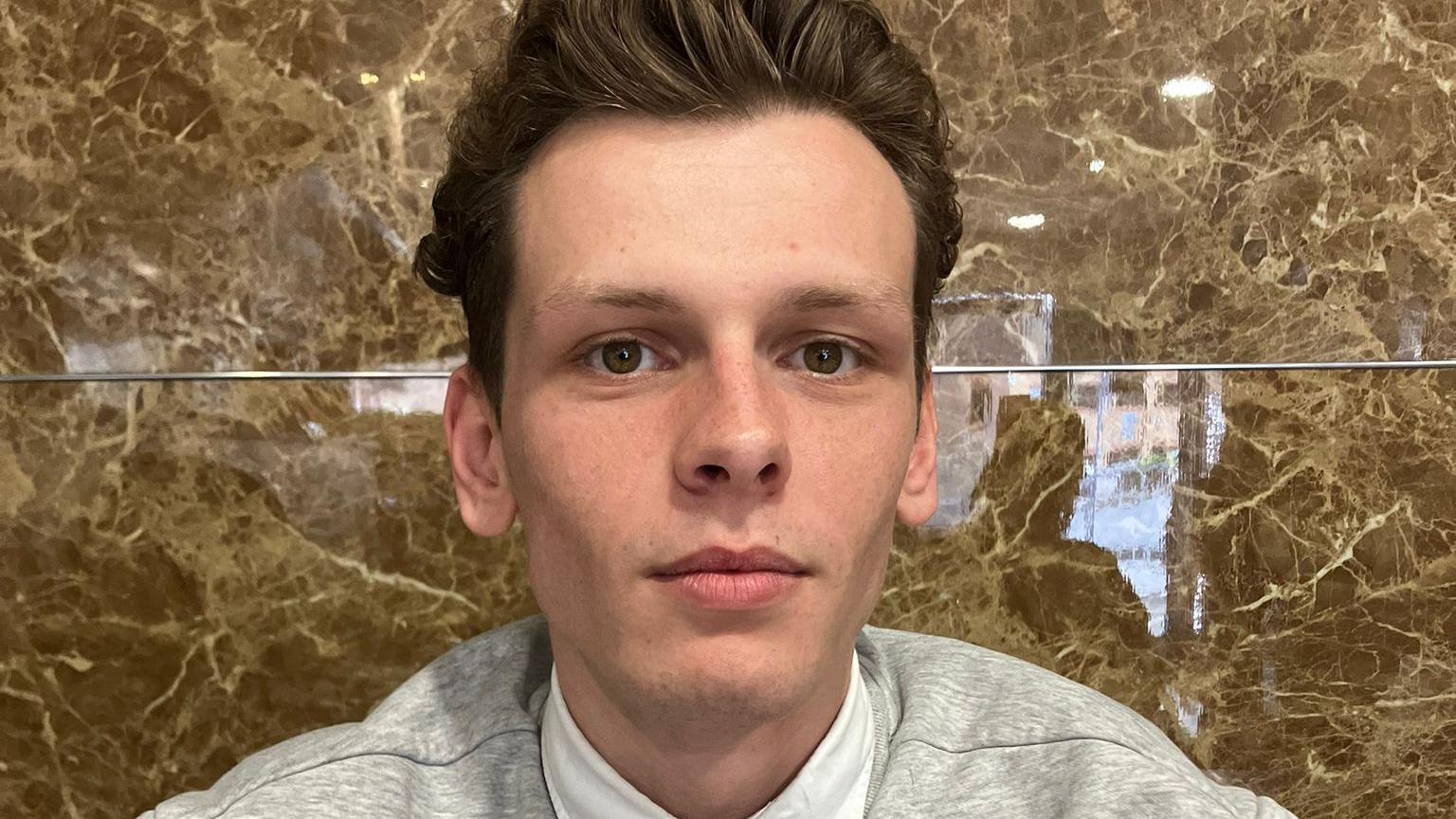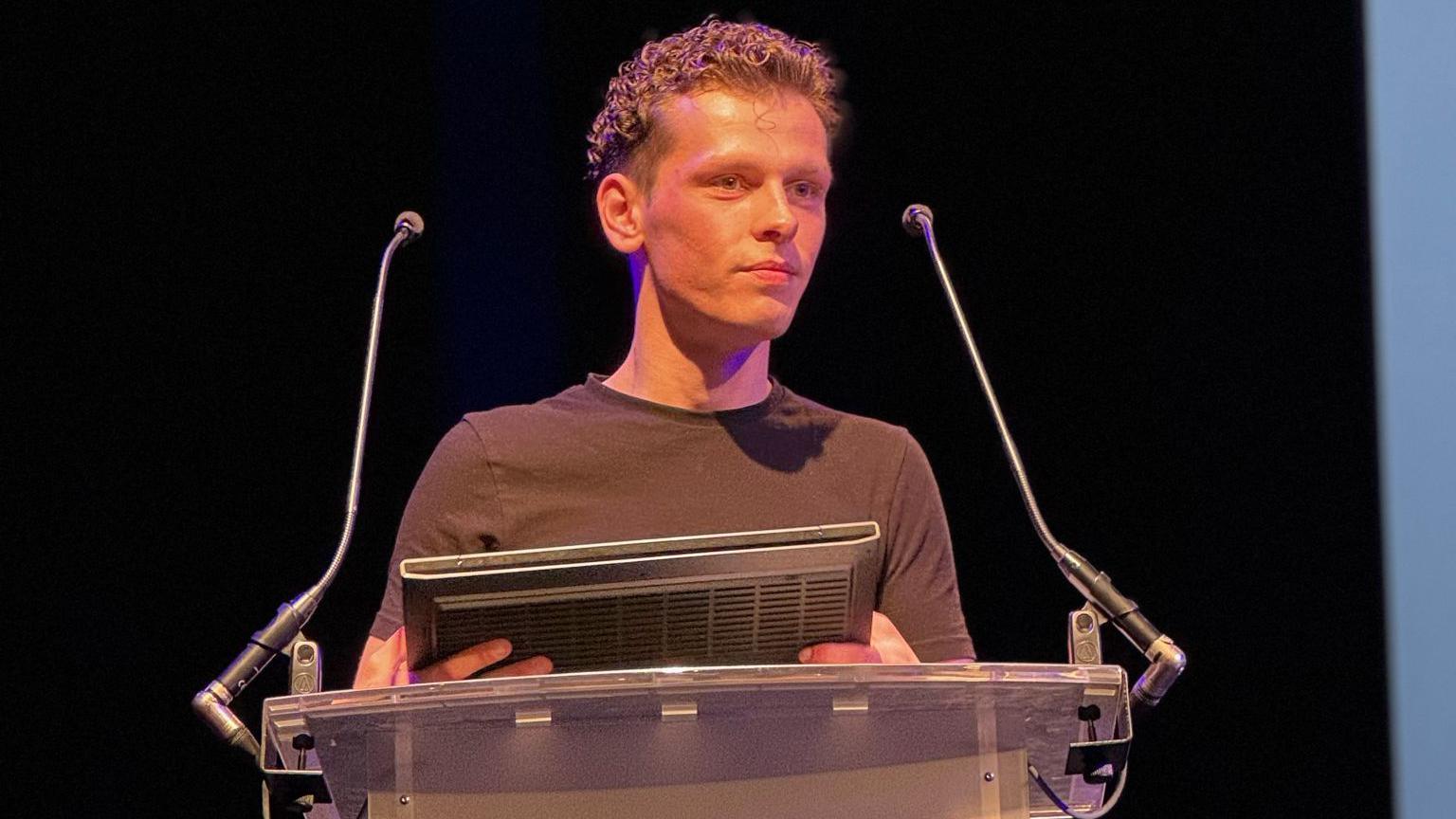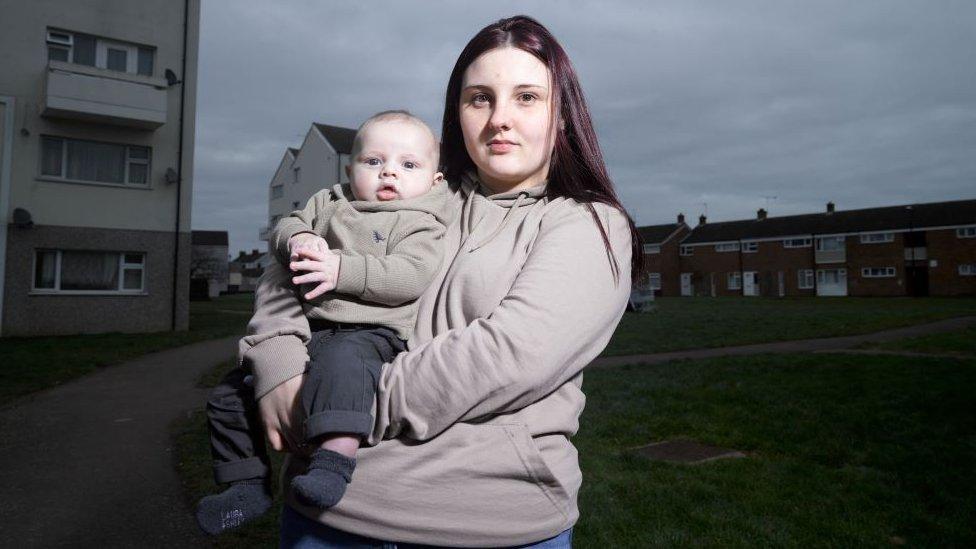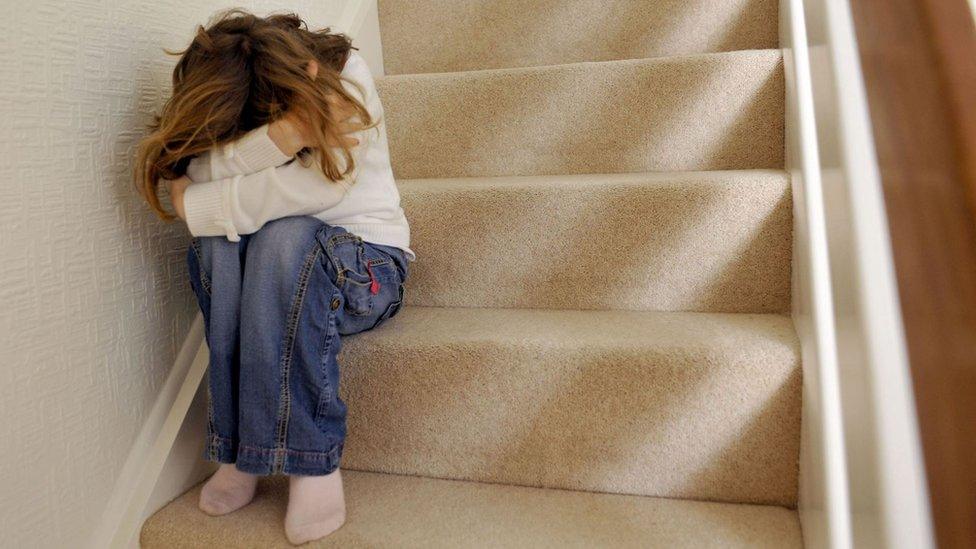'I was thrown in a children's home and cast aside'

Jules Brown went into care at the age of 12
- Published
Jules Brown was taken into care at the age of 12 and spent six years in various foster homes, children’s homes and a hostel before he was told to leave.
He ended up becoming a victim of domestic abuse and then became homeless.
Now aged 23, and living in Norfolk, Jules is determined young people should get better support when they leave the care system.
Here, in his own words, he explains how he got his life back on track and how he is helping other care leavers.
‘One day someone turned up at my school’

Jules is determined that other care leavers will have more support
I grew up in Suffolk and my childhood was very traumatic. I was physically and mentally abused. Social services were involved from when I was a baby. They should have taken me into care a lot earlier.
One day when I was 12, out of the blue, someone turned up at my school. They took me out of my classroom and told me I wasn’t going home that night. I didn’t know what was going on. I was driven an hour away and dropped off somewhere and that was it. I had no psychological or emotional support.
For two weeks, my brother and I were in care together, but the foster carers decided they didn’t want him. That was the most soul-destroying thing that had ever happened to me. I remember screaming as we were ripped apart from each other. That changed my relationships with people for a very long time to come.
‘I ran away from the children’s home’

Jules works with care leavers and helps them prepare for their futures
I was at my first foster family’s home for a year and a half. I was a very calm child. I didn’t cause any trouble and I was a straight-A student. But somewhere along the line, the relationship broke down. I remember knowing they didn’t want me. They contacted my social worker and I was thrown in a children’s home aged 15.
It just wasn’t the environment for me, I was very independent but they didn’t treat me as if I was. After a year I ran away to London for a month. I left the children’s home and I was placed in various hostels in Suffolk and Norfolk and then a funded accommodation provider. Two weeks before my 18th birthday, I got an eviction letter telling me I had to leave.
I knew the letter was coming so I worked three different jobs to get enough money to put down a year’s worth of rent on a flat. I worked at a restaurant in Great Yarmouth, the sea life centre there and a doughnut stall, for six months.
It was daunting because I suddenly had responsibilities I didn’t know anything about. I wasn’t given any financial advice or support. Some people don’t even know how to cook for themselves or wash their clothes. I was overwhelmed to the point where I started taking Class A drugs for the first time. A year and a half later I managed to get myself off drugs. I went cold turkey, I don’t know how I did it. I had no friends and no family, no support network. I had to focus and try and heal myself.
I became a care worker and I loved my job but I ended up being exploited by a family who lived near me who were selling drugs. I ended up in a mental health hospital for a month.
When I was released, I got into a relationship where I was the victim of domestic abuse. I was just looking for someone to love me and care for me. I was homeless when that relationship broke down and I later moved in with a friend.
At the age of 21, my personal assistant was taken away and I had to fight to get that support back. This support was also removed from me recently and that has been another battle to get it reinstated, despite the fact that care leavers are legally entitled to this support until they are 25, which comes under the Children and Social Work Act of 2017.
‘Care leavers should be better supported’

Jules has given several speeches at conferences about care leavers to try and change the current support system
I feel like I was abandoned when I left the care system and I can’t let that keep happening. For the past few years, I have worked with care leavers, from the age of 16 to 18. I go in to their homes and I advise them on their legal rights. I try and help them prepare for life after care. It is empowering to see the glimmer of hope in their faces.
Most people who work in the care system have never been in care so they don’t truly understand. The teenagers I work with respect me more and trust me more because I have been there. I have started speaking at conferences to highlight the fact children in care are some of the most inspirational people you can meet. I also have a podcast, external that investigates the real stories of care.
Children are being taken into care, through no fault of their own, because they are at risk but so often they are not being treated with stability and love.
Half of care leavers up to the age of 24 have a conviction and 25% of people in prison are care leavers. The statistics around mental health for young children in care are also disastrous.
We need investment in youth services and the whole care system needs to be overhauled. The new government needs to improve retention of care staff and come up with a plan to reduce the number of children coming into care because of poverty and abuse.
I want to give a voice to the voiceless. Unless we share our story, we can’t change the destiny of tomorrow. I say to care leavers, please don’t ever give up, don’t ever stop fighting for what you are entitled to. You can achieve anything.
A spokesperson for Suffolk County Council said the council has been in regular contact with Jules and "will continue to do so to support him".
As told to Wayne Bavin and Charlie Jones
If you have been affected by any of the issues raised in this story you can visit BBC Action Line.
Follow Suffolk news on Facebook, external, Instagram, external and X, external. Got a story? Email eastofenglandnews@bbc.co.uk, external or WhatsApp us on 0800 169 1830
Related topics
- Published10 May 2023

- Published10 October 2023
